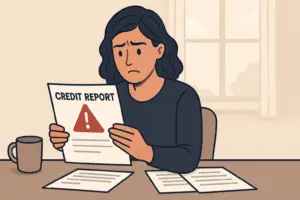Errors in credit reports are no joke: They can negatively impact your credit score and lead to a wide variety of related problems, including loan turndowns, credit card closures and increased interest rates. However, you can correct errors in your credit report and even revive your credit score.

The Importance of Credit Reports
A credit report is a summary of your credit history, including your credit accounts, payment history, and other financial information. A good credit score is essential for obtaining loans, credit cards, and mortgages. It can also affect your ability to get approved for an apartment, land a job, or even get a cell phone contract.
Types of Errors Found in Credit Reports
Common credit report mistakes include: incorrect payment histories, unauthorized accounts, unauthorized charges, and incorrect balances. These errors can be caused by identity theft, incorrect reporting by creditors, or simple mistakes.
Understanding the Credit Dispute Process
When you find an error in your credit report, the first step is to dispute it with the credit bureau. You can do this by submitting a dispute letter that explains the error and provides any supporting documentation. The credit bureau has 30 days to investigate the dispute and respond in writing.
Working with a Credit Dispute Lawyer
If you are unable to correct errors in your credit report by disputing, you may want to consider working with a credit dispute lawyer. A credit dispute lawyer can help you navigate the dispute process and ensure that your credit report is accurate and responds to your claim to fix the report. They can also help you understand your rights under the Fair Credit Reporting Act and bring suit, if necessary.
How to Monitor Your Credit Report for Accuracy
To ensure that your credit report is accurate, it is important to monitor it regularly. You can do this by going to www.annualcreditreport.com and obtaining a free copy of your credit report for each of the three major credit bureaus (Equifax, Experian, and TransUnion).
Importance of FICO Scores and How They Are Calculated
Your FICO score is a three-digit number that reflects your creditworthiness. It is calculated based on your credit history, including your payment history, the amount of debt you owe, and the length of your credit history. A good FICO score is essential for obtaining loans, credit cards, and mortgages.
Dealing with Credit Report Errors from Experian
Experian is one of the three major credit bureaus. If you find an error in your Experian credit report, you can dispute it using the same process as with the other credit bureaus. Experian has 30 days to investigate the dispute and respond in writing.
If they do not respond or refuse to fix the error, you may need to find an attorney with experience in fair credit reporting litigation who can bring suit against Experian on your behalf. Schlanger Law Group litigates regularly against Experian and the other major credit reporting agencies as a core part of the firm’s practice. We are leaders in this field and can review your case for free. Call us at (212) 500-6114.
Finding a Lawyer for Your Credit Report Mistake in New York or New Jersey
If you have been denied credit or penalized from a mistake or error on your credit report, we may be able to help. Contact us at Schlanger Law for a private consultation, We are here for you. Call us now at (212) 500-6114.







